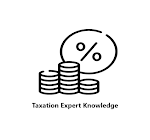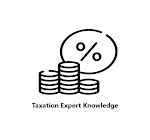Getting around the complex labyrinth of sales tax laws in
New York City can be a daunting task for businesses. With ever-changing laws
and requirements, understanding and complying with sales tax regulations is
essential for success. In this guide, we delve into the nuances of sales tax
regulations in NYC to provide businesses with clarity and insight.
Understanding Sales Tax Basics
What is Sales Tax?
State and municipal governments apply sales tax, often known
as a consumption tax, on the sale of goods and services. In New York City,
sales tax rates vary depending on the location of the sale and the type of
goods or services being sold. Usually, companies gather it at the point of sale
and send it to the relevant tax authorities.
Sales Tax Rates
In New York City, the combined state and local sales tax
rate can range from 7% to 8.875%, depending on the location. Certain items,
such as clothing and food, may be subject to different tax rates or exemptions.
Businesses must be aware of these rates and apply them accurately to avoid
penalties and fines.
Sales Tax Collection and Reporting
Sales Tax Permit
Before collecting sales tax, businesses in New York City
must obtain a sales tax permit from the New York State Department of Taxation
and Finance. This permit authorizes businesses to obtain from clients sales tax
and send it to the state.
Sales Tax Reporting
Businesses are required to file regular sales tax returns
with the New York State Department of Taxation and Finance. These returns
typically include information about total sales, taxable sales, and sales tax
collected. Failing to file or remit sales tax on time can result in penalties
and interest charges.
Sales Tax Exemptions and Credits
Exempt Sales
Certain items and transactions may be exempt from sales tax
in New York City. Common exemptions include sales of clothing and footwear
under a certain price threshold, sales of food and beverages for consumption
off-premises, and sales to tax-exempt organizations.
Sales Tax Credits
Businesses may be eligible for sales tax credits for various reasons, such as overpayment of sales tax or purchases for resale. These credits can be used to reduce subsequent sales tax liabilities or requested as a refund from the tax authorities.
Compliance and Audits
Compliance Measures
To guarantee adherence to sales tax laws, companies in New
York City should implement robust internal controls and procedures. This may
include maintaining accurate records of sales and purchases, reconciling sales
tax collected with sales tax returns, and conducting regular audits of sales
tax processes.
Sales Tax Audits
The New York State Department of Taxation and Finance
conducts periodic audits of businesses to verify compliance with sales tax
laws. During an audit, tax authorities may review business records, conduct
interviews with employees, and perform on-site inspections. Businesses need to
cooperate fully with auditors and address any issues promptly to avoid
penalties.
Conclusion
In conclusion, understanding and complying with sales tax
regulations is a fundamental aspect of doing business in New York City. By
familiarizing themselves with sales tax basics, obtaining the necessary
permits, accurately collecting and remitting sales tax, and implementing
compliance measures, With the help of sales tax accountant NYS, businesses can confidently negotiate complex sales tax
laws and avoid expensive fines.









Social Plugin